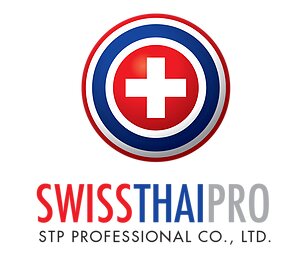Best Insurance Fraud Lawyers in Bangkok
Share your needs with us, get contacted by law firms.
Free. Takes 2 min.
List of the best lawyers in Bangkok, Thailand
Legal guides written by Smart Legal Solutions:
- Main Legal Measures to Protect Foreign Investment in Thailand
- The importance of the geographical indications for the Thai economy
Legal guides written by Mahanakorn Partners Group Co., Ltd:
- Thailand Strengthens Anti-Money Laundering Laws with New Amendments
- Recent Updates to Thailand’s Long-Term Resident (LTR) Visa and SMART Visa Programs
- Managing Risks in Public-Private Partnership Projects
Thailand Insurance Fraud Legal Articles
Browse our 2 legal articles about Insurance Fraud in Thailand written by expert lawyers.
- How to File an Insurance Claim in Thailand?
- Here we share 5 basic steps to help you successfully file an insurance claim in Thailand.Particularly if you live abroad, filing an insurance claim can sometimes feel overwhelming. Still, with the correct direction, you will easily negotiate the procedure. This post will dissect the five basic stages to submit an... Read more →
- How to Write a Letter to an Insurance Company for a Claim in Thailand + Templates
- Following a systematic approach is extremely important while handling insurance claims in Thailand. This will serve to guarantee the effective and timely processing of your request. Writing a letter to an insurance company for a claim calls for straightforward interaction, presenting all of the necessary documentation, and following the company’s... Read more →
About Insurance Fraud Law in Bangkok, Thailand
Insurance fraud in Bangkok, Thailand, refers to any act committed to defraud an insurance process. This includes exaggerating claims, falsifying information, or orchestrating accidents and thefts to receive insurance compensation unlawfully. Authorities in Bangkok take insurance fraud seriously, as it not only affects insurance companies but also escalates premium costs for honest policyholders. Consequently, the city has stringent laws and dedicated enforcement teams to deal with insurance fraud cases.
Why You May Need a Lawyer
Individuals may find themselves in need of legal aid in situations where they have been accused of committing insurance fraud, which can carry significant fines or even imprisonment if proven guilty. Additionally, individuals who are victims of insurance fraud, such as a company being defrauded by a false claim, may also require legal assistance to navigate the complexities of recovering any losses incurred as a result of fraudulent activity. Legal representation is crucial to ensuring a fair investigation and defense, understanding legal rights, and navigating procedural requirements efficiently.
Local Laws Overview
In Bangkok, the laws related to insurance fraud fall under broader Thai anti-fraud legislation. The Thai Penal Code and the Insurance Act serve as primary legal guides. The law stipulates various fraudulent activities and corresponding penalties, which include both fines and imprisonment. The Insurance Commission of Thailand plays a crucial role in regulating and supervising insurance practices to prevent fraudulent activities. It also provides guidelines on how insurers and insured persons should conduct their dealings, including thorough documentation and verification procedures to prevent fraud.
Frequently Asked Questions
What constitutes insurance fraud in Thailand?
Insurance fraud can involve activities such as falsifying claims, inflating damage assessments, providing incorrect information on insurance applications, and orchestrating accidents or thefts to obtain payouts.
How serious is an insurance fraud charge?
An insurance fraud charge is considered a severe offense in Thailand, with potential penalties including fines and imprisonment. The severity of the punishment often depends on the magnitude of the fraud.
Can insurance companies in Thailand detect fraud easily?
Insurance companies use sophisticated methods, including data analytics, investigation teams, and cooperation with law enforcement, to detect fraud. However, not all fraudulent activities are detected immediately.
What should I do if accused of insurance fraud?
If accused of insurance fraud, it is important to seek legal counsel immediately. A lawyer specializing in fraud can guide you through the legal process, ensuring that your rights are protected.
Do insurance fraud cases often go to trial in Bangkok?
Many insurance fraud cases are resolved outside court through settlements or negotiations. However, serious cases may proceed to trial, especially if substantial evidence of fraud is presented.
How long does it take to resolve an insurance fraud case?
The duration to resolve an insurance fraud case varies based on complexity and whether it is settled out of court or proceeds to trial. Simple cases may conclude quickly, while complex ones can extend over months or even years.
What evidence is needed to prove insurance fraud?
Proof may include documented discrepancies, eyewitness testimony, contradictory statements, expert evaluations, and digital evidence, depending on the nature of the fraud allegation.
Is there a statute of limitations on insurance fraud in Thailand?
The statute of limitations for insurance fraud in Thailand can depend on the specifics of the case. It’s advisable to consult a legal professional for detailed information regarding time limits.
Can I report suspected insurance fraud?
Yes, suspected insurance fraud can be reported to the relevant authorities, such as the insurance company involved or the Insurance Commission of Thailand, which may open an investigation.
What are my rights if classified as a victim of insurance fraud?
Victims of insurance fraud have the right to seek restitution for any losses and should consult with legal professionals to explore potential legal remedies.
Additional Resources
For additional assistance with insurance fraud, individuals can contact the Insurance Commission of Thailand, which provides resources and support to both policyholders and insurance companies. Legal advice can also be obtained from law firms specializing in fraud and insurance law. Community legal aid organizations may also provide guidance and support for those unable to afford private representation.
Next Steps
If you suspect involvement in an insurance fraud case, the first step is to seek professional legal assistance. This can involve hiring a skilled lawyer who specializes in insurance fraud to assess your situation, explain your rights, and guide you through the legal processes. Gather all relevant documentation and evidence related to the case and engage in continuous communication with your legal representative to ensure your interests are optimally advocated. Additionally, cooperating with authorities and complying with legal procedures is crucial for a favorable resolution.
Lawzana helps you find the best lawyers and law firms in Bangkok through a curated and pre-screened list of qualified legal professionals. Our platform offers rankings and detailed profiles of attorneys and law firms, allowing you to compare based on practice areas, including Insurance Fraud, experience, and client feedback.
Each profile includes a description of the firm's areas of practice, client reviews, team members and partners, year of establishment, spoken languages, office locations, contact information, social media presence, and any published articles or resources. Most firms on our platform speak English and are experienced in both local and international legal matters.
Get a quote from top-rated law firms in Bangkok, Thailand — quickly, securely, and without unnecessary hassle.
Disclaimer:
The information provided on this page is for general informational purposes only and does not constitute legal advice. While we strive to ensure the accuracy and relevance of the content, legal information may change over time, and interpretations of the law can vary. You should always consult with a qualified legal professional for advice specific to your situation.
We disclaim all liability for actions taken or not taken based on the content of this page. If you believe any information is incorrect or outdated, please contact us, and we will review and update it where appropriate.















